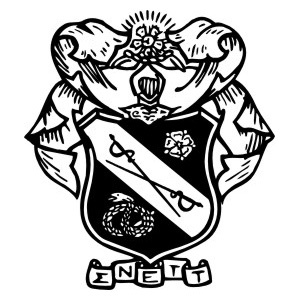

It has more than 1,000 collegiate and alumnae chapters located in the United States, Canada, England, Japan ( Tokyo and Okinawa), Germany, the Virgin Islands, Liberia, Bermuda, Jamaica, The Bahamas, South Korea and Nigeria. There is no place for this abhorrent misconduct nor a culture that supports it in the Interfraternity Council community at the University of Southern California or anywhere.Delta Sigma Theta ( ΔΣΘ), an international historically Black sorority, was founded on January 13, 1913, at Howard University. “We are disgusted this violence took place in our community.

“We are deeply apologetic for the trauma caused and impact on victims,” the organization said. The USC Interfraternity Council said in a statement that it is “disturbed and angered” by the reports. “It’s times like this that it’s like really, really important that like we come together and separate the system as it was, or as it is, from like the people who are part of that system,” Price said. Malik Price, a senior, said he did not agree with abolishing the Greek system but joined the protest to make it clear that the allegations against Sigma Nu do not represent Greek life as a whole. “We need to back USC into a corner that they can’t get out of.” “Now we have this sort of fuel, all of us activists and organizers are trying to keep alive,” Delarosa said. She added that the protest at Sigma Nu would reignite the effort to end Greek life on college campuses - including at USC, where an Instagram handle, is petitioning online for abolition. To Alyssa Delarosa, a 21-year-old senior who helped organize the Sigma Nu protest, no training or laws are going to eliminate sexual assault because it’s a “systemic issue” that can only be solved by eliminating the Greek system. “When these happen, we can either choose to leave or we can choose to stay and do something about it.”Īt his fraternity, he said they have offered extra hours of in-person training to combat sexual assault. “They were 20 feet away and we didn’t know,” the student said. One of them, who declined to be named, said he was spurred to join protesters after learning about the allegations at the neighboring fraternity. The conference represents about 250,000 members in 6,000 fraternity chapters on 550 campuses.Īt USC, some fraternity members joined the protests. He said it would be unfair to blame all fraternities for the actions of a few and that Greek organizations have been shown to have a positive impact on students - one reason, he said, fraternities saw near record enrollment this fall. Judson Horras, president of the North American Interfraternity Conference, said the vast majority of fraternity members were “appalled” by campus sexual assault and had been the ones to report allegations of it at campuses including the University of Kansas and University of Iowa. Fondacaro, for instance, said most of her friends know someone who has been sexually assaulted. National surveys have shown that one in four undergraduate women are sexually assaulted during their college years, although some believe those numbers are underreported.
#Ucla sigma nu how to#
Several students said USC’s requirement for training on how to prevent sexual assault has not eradicated a “rape culture” on campus. There is still too much of a “hush hush” culture due to fear that it will tarnish the image of Greek organizations, she said. Hannah Fondacaro, a USC sorority member and senior majoring in psychology and prelaw, said sororities and fraternities need to speak out more about the problem. “I understand that it’s realistic to say like, ‘Hey, make sure you cover your drinks,’” Smerdon added, “but when the only rhetoric that’s coming from the administration at USC is, ‘Here’s how to not get raped,’ and they haven’t put anything else out, it’s incredibly impactful.” “You can still do all of those things and be as safe as possible and still be assaulted,” Brown said.

Simone Brown, 20, said an initial university email after the sexual assault allegation reminding women how they can stay safe seemed inappropriate. “Well, clearly it’s still a problem,” she said. “You are all complicit,” read a message in marker on the building’s glass doors.Ĭlaire Smerdon, a sophomore, said she has heard about campus sexual assault since she was 6 years old and that people had downplayed the issue at USC, saying few cases have occurred in the last decade. “What if it was your sister?” another said. “You broke me,” someone had written on lined notebook paper. By Friday, the house was plastered with notes as some students stood silently surveying them and others sat on the lawn. At USC, calls to gather at the Sigma Nu fraternity house and write a note of protest traveled swiftly on social media beginning late Thursday afternoon.


 0 kommentar(er)
0 kommentar(er)
